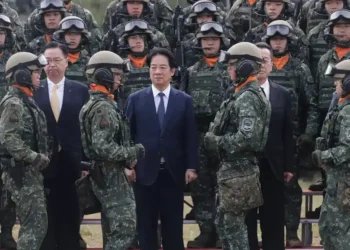Canada Expands Arctic Military Presence with $4.2 Billion Australian Radar Purchase
Strengthening Arctic Sovereignty
Canadian Prime Minister Mark Carney announced a major defense acquisition and military expansion in the Arctic on Tuesday, highlighting Canada’s commitment to asserting sovereignty in the increasingly contested region. Speaking from Nunavut, Carney revealed that Canada will purchase an Over-the-Horizon Radar system from Australia, valued at CAD 6 billion ($4.2 billion USD). The advanced radar system will provide extended early warning coverage from the U.S.-Canada border into the Arctic.
Strategic Defense Investment
The radar purchase aligns with Canada’s strategic goal of enhancing Arctic security and military preparedness. The system consists of a series of pillars stretching nearly 1.6 kilometers and is expected to have a smaller footprint than similar American radar installations. Australian Prime Minister Anthony Albanese praised the deal, calling it “a significant export,” pending finalization.
During a phone call the previous night, Albanese acknowledged the shifting geopolitical landscape, stating, “There are issues between Canada and the United States that I never would have expected in my lifetime.”
NORAD and Military Implications
Senior Canadian officials confirmed that the radar acquisition has been well received by North American Aerospace Defense Command (NORAD) leaders, who oversee North American airspace security. However, the political reception in Washington remains uncertain. Canadian defense officials, speaking on condition of anonymity, noted that the deal reflects Canada’s broader commitment to strengthening its national security infrastructure.
Alongside the radar purchase, Carney announced a CAD 420 million ($294 million USD) initiative to expand Canada’s Arctic military operations, including increased personnel deployment and year-round training exercises.
Tensions with the U.S.
Carney’s Arctic visit comes amid heightened tensions with the United States. Former President Donald Trump’s remarks regarding Greenland and Canada have fueled concerns about U.S. foreign policy shifts. Trump has repeatedly suggested economic coercion to integrate Canada as the “51st state,” a notion that has angered Canadians and unexpectedly revitalized support for Carney’s Liberal government ahead of an anticipated election.
“The United States’ priorities, once closely aligned with our own, are beginning to shift,” Carney stated. His government is preparing for potential U.S. trade measures, as Trump has already imposed tariffs on Canadian steel and aluminum and threatened broader economic sanctions.
Political Ramifications
Trump’s dismissive attitude toward Canada was further underscored in a Fox News interview, where he claimed, “Canada was meant to be the 51st state,” and suggested he had no preference regarding the outcome of the upcoming Canadian elections. Despite tensions, Carney remains open to future discussions with Washington, emphasizing that “at the appropriate time, two sovereign nations will have a comprehensive dialogue.”
The Arctic’s Growing Strategic Importance
Carney’s visit to Iqaluit, the capital of Nunavut, underscores the Arctic’s increasing significance in global security and trade. With a predominantly Inuit population of about 40,000, Nunavut is a vast region facing extreme weather conditions and limited infrastructure. However, climate change and shifting economic interests are bringing the Arctic into the spotlight.
The expansion of Canadian military operations in the region signals the country’s commitment to maintaining sovereignty and security in a rapidly changing geopolitical landscape.
This article was rewritten by JournosNews.com based on verified reporting from trusted sources. The content has been independently reviewed, fact-checked, and edited for accuracy, neutrality, tone, and global readability in accordance with Google News and AdSense standards.
All opinions, quotes, or statements from contributors, experts, or sourced organizations do not necessarily reflect the views of JournosNews.com. JournosNews.com maintains full editorial independence from any external funders, sponsors, or organizations.
Stay informed with JournosNews.com — your trusted source for verified global reporting and in-depth analysis. Follow us on Google News, BlueSky, and X for real-time updates.














